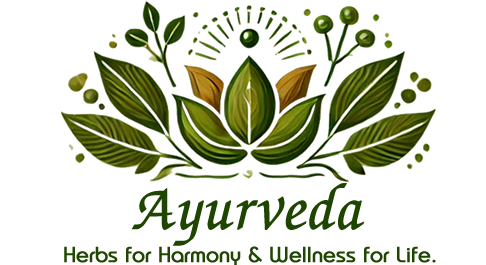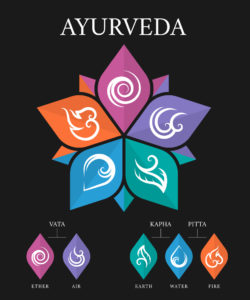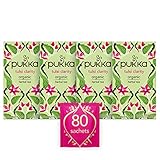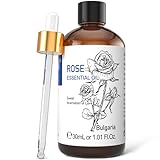Ayurveda, the ancient science of life and holistic healing, has been practiced for over 5,000 years, offering natural remedies that align the body, mind, and spirit. Rooted in nature, Ayurveda utilises herbs, diet, lifestyle practices, and detoxification techniques to promote optimal health and well-being. Whether you seek to boost immunity, detoxify the body, enhance skincare, or support digestive health, Ayurveda provides time-tested solutions using herbal supplements, teas, and essential oils.
A Holistic Approach to Wellness
Ayurveda is based on the concept of three doshas - Vata, Pitta, and Kapha, which represent different biological energies governing bodily functions. When these doshas are in balance, health flourishes; when imbalanced, disease can manifest. Ayurvedic remedies aim to restore this equilibrium through natural ingredients, mindful nutrition, and detoxifying therapies.
Identify Your Dosha
Most people have a dominant Dosha or a combination of two Doshas. You can identify your Dosha by:
- Observing your natural tendencies (e.g., are you energetic like Vata, fiery like Pitta, or grounded like Kapha?).
- Noting how you react to stress, food, and the environment.
- Taking an Ayurvedic Dosha Quiz
By understanding your Dosha, you can make more informed choices about your diet, lifestyle, and supplements to restore balance and well-being.
Ayurveda Herbs
How Ayurveda Differs from Conventional Medicine
| Feature | Ayurveda | Conventional Medicine |
|---|---|---|
| Approach | Holistic – treats the root cause | Symptom-focused |
| Ingredients | Natural herbs and botanicals | Synthetic chemicals |
| Side Effects | Minimal to none | Possible long-term side effects |
| Personalisation | Tailored to individual body types (Doshas) | One-size-fits-all approach |
| Long-Term Benefits | Promotes sustainable wellness | Often temporary relief |
Unlike synthetic supplements that often provide short-lived results, Ayurvedic formulations work in synergy with the body, enhancing natural healing processes without disrupting internal balance.
Ayurvedic Supplements for Immunity Boost
A strong immune system is key to overall health, and Ayurveda offers numerous herbal formulations to enhance immune function naturally. Some of the most revered Ayurvedic herbs for immunity include:
- Ashwagandha – Ashwagandha is a renowned adaptogenic herb, meaning it helps the body adapt to stress and restore balance. It’s especially valued in Ayurveda for supporting energy, stamina, and mental clarity. By reducing cortisol (the stress hormone), Ashwagandha helps prevent immune suppression caused by chronic stress. It’s also believed to strengthen the body’s natural resistance to illness, making it a brilliant all-rounder for both mental and physical wellbeing.
- Turmeric (Curcumin) – Turmeric – particularly its active compound curcumin – is one of the most celebrated herbs in both traditional and modern wellness circles. It’s a powerful anti-inflammatory and antioxidant that helps the body fight off infections and reduce internal inflammation, which can weaken the immune system. Turmeric supports liver function and helps detoxify the body, making it a great herb for long-term immune health. Often used in golden milk or taken as a supplement, it’s a simple yet potent addition to your daily routine.
- Tulsi (Holy Basil) – Known in India as the “Queen of Herbs”, Tulsi is revered not just for its spiritual significance, but for its impressive health benefits. Tulsi is naturally antibacterial, antiviral, and anti-inflammatory, making it a wonderful herb for protecting the body during cold and flu season. It also supports the respiratory system – helping to clear congestion, ease breathing, and reduce the impact of seasonal allergies. Tulsi tea is a lovely way to enjoy its calming yet protective qualities.
- Amla (Indian Gooseberry) – Amla is a small green fruit packed with Vitamin C – in fact, it’s one of the richest natural sources available. In Ayurveda, Amla is a key ingredient in many rejuvenating formulas because it helps strengthen the immune system, support digestion, and promote glowing skin. It’s also an antioxidant powerhouse, helping the body fight off free radicals and stay youthful. Amla can be taken as a juice, powder, or in the popular Ayurvedic tonic Chyawanprash.
- Giloy (Guduchi) – Giloy is sometimes called the “root of immortality” in Ayurvedic texts – and for good reason. This climbing plant is known for its immune-boosting, detoxifying, and anti-inflammatory properties. It helps purify the blood, fights off infections, and promotes healthy liver function. Giloy is particularly helpful during times of recovery from illness, as it helps rebuild strength and resilience. It’s also used to manage fevers and inflammatory conditions in the body.
Ayurvedic immunity supplements come in various forms, including capsules, powders, and herbal teas that nourish the body from within.
Detoxing with Ayurveda: Natural Cleansing for Vitality
In Ayurveda, detoxification is seen as a vital part of maintaining health and vitality. Over time, toxins – known as Ama – can build up in the body due to poor digestion, stress, processed foods, and environmental factors. These toxins can lead to sluggishness, skin issues, digestive discomfort, and a general feeling of imbalance. Ayurvedic detoxing, particularly at the change of seasons, helps the body gently eliminate these impurities, restore energy, and support overall wellbeing.
Let’s explore some of the most commonly used Ayurvedic detox remedies and how they help cleanse and rebalance the body:
- Panchakarma Therapy – Deep, Holistic Detoxification
Panchakarma is considered Ayurveda’s most profound detox process. It includes a series of tailored therapies such as oil massages (Abhyanga), herbal steam treatments (Swedana), and cleansing techniques like purgation and nasal therapy. This process is guided by a trained Ayurvedic practitioner and is designed to release deep-seated toxins, rejuvenate the tissues, and restore balance to body and mind. Panchakarma is especially recommended at the transition between seasons, when the body is naturally primed to let go of accumulated Ama. - Triphala – Gentle Cleansing and Digestive Support
Triphala is a traditional herbal formula made from three fruits: Amla, Haritaki, and Bibhitaki. This combination supports gentle, regular bowel movements without being harsh or habit-forming. It also tones the digestive tract, improves nutrient absorption, and supports detoxification through the colon. Amla provides antioxidant protection and vitamin C, Haritaki promotes regular elimination, and Bibhitaki helps remove excess mucus and waste. Triphala is often taken before bed as a mild nightly cleanser to keep the digestive system in good working order. - Neem – Blood and Liver Cleanser
Neem is a powerful purifying herb known for its bitter taste and potent detoxifying properties. It helps cleanse the blood, support liver function, and eliminate skin and metabolic toxins. Neem is commonly used for clearing up acne and inflammatory skin conditions from the inside out. Its antimicrobial qualities also make it effective against internal infections and overgrowths of unwanted bacteria. Due to its strength, neem is best used under guidance, particularly during a dedicated detox period. - Coriander, Cumin, and Fennel Tea – Daily Detox Drink
This light, aromatic tea is a simple yet effective daily detoxifier. Cumin helps ignite the digestive fire (Agni), coriander supports detox through the urinary system, and fennel soothes the gut and reduces bloating. Together, these three spices work harmoniously to flush out toxins, improve digestion, and restore internal balance. Sipping this tea throughout the day – especially during a cleanse – supports gentle detoxification without depleting energy levels.
Ayurvedic detox practices not only help eliminate physical toxins, but also support mental clarity, emotional balance, and spiritual renewal. By clearing out what the body no longer needs, you create space for energy, vitality, and a deeper sense of wellness to flow. Whether you opt for a full Panchakarma retreat or simply integrate herbs like Triphala and neem into your routine, Ayurvedic detoxing is a powerful way to reconnect with your natural state of balance and health.
Skincare & Beauty: Ayurveda’s Herbal Approach to Radiant Skin
Ayurveda takes a holistic view of beauty – it’s not just about what you put on your skin, but how you care for your body and mind as a whole. Glowing skin is seen as a reflection of good health, proper digestion, and emotional balance. That’s why Ayurvedic skincare often combines internal cleansing with topical treatments made from herbs, oils, and plant-based ingredients. These remedies have been used for centuries to nourish, heal, and protect the skin in a gentle and natural way.
Let’s explore some of the most loved Ayurvedic combinations for skincare and beauty:
- Saffron & Turmeric – For Brightening and Even Tone
Saffron and turmeric are two of Ayurveda’s most prized ingredients for enhancing skin tone and radiance. Saffron is known for its brightening effects and is often used to improve complexion and fade blemishes. Turmeric, with its powerful anti-inflammatory and antibacterial properties, helps calm irritation, reduce pigmentation, and promote a healthy glow. Together, they make an excellent combination for dull or uneven skin. These herbs are often found in face masks or oils aimed at reviving tired, stressed skin.
Bestseller No. 1 - Sandalwood & Rose Water – For Sensitive and Inflamed Skin
Sandalwood has long been used in Ayurvedic beauty rituals for its cooling and calming nature. It helps soothe redness, reduce inflammation, and can even assist in healing breakouts or sunburn. When blended with rose water – another cooling, hydrating remedy – it becomes a gentle tonic for sensitive skin. This pairing is ideal for those prone to irritation, heat rashes, or rosacea, and it leaves the skin feeling refreshed and soft.Bestseller No. 1 - Aloe Vera & Neem – For Acne and Blemish Control
Aloe vera is a natural healer, known for its ability to calm and hydrate the skin, while neem is one of Ayurveda’s most effective herbs for purifying and clearing up acne-prone skin. Neem has strong antibacterial and antifungal properties that help tackle the root cause of breakouts, while aloe soothes any inflammation and supports healing. This combination is perfect for oily or blemish-prone skin, helping to maintain a clear, balanced complexion without over-drying.
- Kumkumadi Tailam – The Ultimate Ayurvedic Elixir for Skin
Kumkumadi Tailam is a luxurious herbal oil made with a blend of powerful ingredients including saffron, sandalwood, liquorice, and vetiver. It’s highly regarded in Ayurveda for its ability to enhance skin texture, improve tone, and reduce the appearance of fine lines, dark spots, and blemishes. Used as a facial oil, it deeply nourishes and rejuvenates the skin overnight, leaving it soft, smooth, and radiant. This oil is especially loved by those looking for a natural, age-defying skincare solution.Bestseller No. 1
Ayurvedic skincare isn’t about quick fixes – it’s about finding balance, nourishing your skin with nature’s finest ingredients, and creating a beauty ritual that supports you from within. Natural Ayurvedic face packs, herbal oils, and body scrubs ensure a glowing and youthful appearance without chemicals.
Digestive Health: Ayurvedic Solutions for a Happy Gut
Good digestion is considered the foundation of health in Ayurveda. When your digestive fire – or Agni – is strong, your body can absorb nutrients efficiently and get rid of waste effectively. Ayurveda has long used natural herbs and remedies to support this balance. Here’s a closer look at some of the most trusted ingredients:
- Trikatu (Ginger, Black Pepper, Long Pepper) – Trikatu is a classic Ayurvedic blend made up of three powerful spices: ginger (adrak), black pepper (kali mirch), and long pepper (pippali). Together, they work to stimulate the digestive fire, boost metabolism, and clear toxins from the body. Ginger is well-known for its ability to relieve nausea and improve circulation, while black and long pepper enhance nutrient absorption and help break down heavy foods. Trikatu is particularly helpful if you often feel sluggish or experience indigestion after meals.
- Ajwain (Carom Seeds) – Ajwain, or carom seeds, are a household remedy in many Indian kitchens. These tiny seeds pack a punch when it comes to soothing the digestive system. They help relieve gas, bloating, acidity, and even mild stomach cramps. Ajwain has antimicrobial properties and is known to support the breakdown of food, making it easier to digest. A pinch of ajwain with warm water after a heavy meal can do wonders for easing discomfort.
- Fennel & Cardamom – Fennel (saunf) and cardamom (elaichi) are gentle yet effective digestive aids that are often used together after meals. Fennel seeds help relax the gastrointestinal muscles and reduce bloating, while cardamom supports digestion and freshens breath. Both are naturally cooling and help soothe an irritated gut. They’re perfect for calming excess heat in the digestive system – particularly helpful for those with a Pitta imbalance.
- Buttermilk with Hing (Asafoetida) – Buttermilk, when spiced with a pinch of hing (asafoetida), becomes a highly effective digestive drink in Ayurveda. Buttermilk acts as a natural probiotic, promoting a healthy balance of gut bacteria, while hing is known for its powerful anti-bloating and carminative effects. Together, they support gut health, reduce gas and indigestion, and help settle the stomach. This remedy is often recommended after a heavy or spicy meal to restore digestive harmony.
Ayurvedic herbal teas, digestive tonics, and mindful eating practices promote strong digestion and nutrient absorption.
Ayurvedic Teas & Beverages: Nourishment in Every Sip
In Ayurveda, what you drink is just as important as what you eat when it comes to maintaining balance and promoting health. Herbal teas and nourishing beverages are crafted to support digestion, boost immunity, and restore harmony among the body’s three doshas (Vata, Pitta, and Kapha). Ayurvedic drinks are typically caffeine-free, packed with antioxidants, and designed to heal from within – making them a gentle yet powerful addition to your daily routine.
Here’s a closer look at some of the most popular Ayurvedic teas and their incredible benefits:
- Golden Milk (Turmeric Latte) – Warming and Restorative
Golden Milk, also known as turmeric latte, is a traditional Ayurvedic beverage made with turmeric, black pepper, and milk (often plant-based alternatives are used too). Turmeric is prized for its potent anti-inflammatory and antioxidant properties, supporting joint health, digestion, and overall immunity. Black pepper is added to enhance the absorption of curcumin – the active compound in turmeric – making the drink even more effective. Golden Milk is soothing, especially at bedtime, helping the body repair and recover overnight. - Tulsi Tea – Stress-Relieving and Immune-Boosting
Tulsi, or Holy Basil, is revered as one of Ayurveda’s most sacred and healing herbs. Tulsi tea is naturally caffeine-free and rich in adaptogens, helping the body manage stress, balance cortisol levels, and strengthen the immune system. It also has antibacterial and antiviral properties, making it an excellent daily choice for staying resilient against seasonal illnesses. Drinking Tulsi tea regularly supports mental clarity, respiratory health, and emotional wellbeing.
- Ginger-Lemon-Honey Tea – Detoxifying and Digestive
This classic combination is a go-to remedy in Ayurveda for clearing toxins and aiding digestion. Ginger stimulates the digestive fire (Agni), helping to break down food efficiently and reduce bloating or discomfort. Lemon is rich in vitamin C and acts as a natural cleanser, while honey offers antimicrobial properties and soothes the throat. Together, these ingredients create a refreshing, warming drink that supports gut health, boosts immunity, and gently detoxifies the body. - Cumin-Coriander-Fennel Tea – Balancing and Metabolism-Enhancing
Cumin, coriander, and fennel are three digestive superstars in Ayurveda. Cumin helps stimulate digestion and reduce sluggishness; coriander cools the body and supports urinary health; fennel relaxes the digestive tract and reduces gas and bloating. This tea is often recommended for balancing all three doshas and is especially helpful after meals to aid metabolism. It’s a gentle, everyday drink that promotes digestive comfort and lightness without overstimulating the system.
Bestseller No. 1
In Ayurveda, teas are not just beverages – they are considered therapeutic tools for everyday health. By carefully selecting herbs and spices suited to your body type and current state, you can use teas to nourish, cleanse, and revitalise from within. Whether you're seeking stress relief, digestive support, or immune strengthening, Ayurvedic teas offer a simple, comforting way to care for your health naturally.
Essential Oils & Aromatherapy: Healing through the Senses
Aromatherapy is a key component of Ayurveda, using essential oils to balance the mind and body. Some widely used Ayurvedic essential oils include:
- Eucalyptus Oil – Eucalyptus is widely known for its refreshing and invigorating scent. In Ayurveda, it’s often used for its cleansing and purifying qualities. This herb is particularly helpful in supporting the respiratory system – it can help ease congestion, soothe coughs, and clear the airways. Eucalyptus oil is also popular in massage therapy, as it helps relieve muscle tension and can support circulation. Its antibacterial and anti-inflammatory properties make it a great natural remedy for colds and seasonal allergies.
- Jasmine Oil – Jasmine is prized in Ayurveda for its mood-enhancing and aphrodisiac qualities. Its sweet, floral fragrance is known to uplift the spirit, ease depression, and promote a sense of inner joy. Jasmine oil is often used in aromatherapy and skincare, where it helps nourish dry or sensitive skin and calm irritation. This herb also supports emotional balance and is thought to harmonise all three doshas, particularly Pitta. Jasmine tea is a soothing, fragrant option that promotes relaxation and digestive comfort.
- Lavender Oil – Lavender is a well-loved herb in both modern and Ayurvedic wellness. Known for its calming aroma, it’s often used to promote restful sleep, reduce stress, and calm anxiety. In Ayurveda, lavender supports the nervous system and helps balance Vata and Pitta doshas. It also has antiseptic and anti-inflammatory properties, making it useful in skin care for soothing irritation and healing minor cuts. Whether in a bath, oil blend, or pillow spray, lavender is a gentle but powerful herb for emotional and physical wellbeing.
- Rose Oil - The rose isn’t just a beautiful flower, in Ayurveda, it’s cherished for its cooling and calming nature. Rose is often used to soothe the mind, balance emotions, and support heart health. Rose water or oil can help reduce inflammation, hydrate the skin, and promote a sense of relaxation. It’s especially beneficial for those with a Pitta constitution, as it helps cool excess heat and emotional intensity. Drinking rose tea or using rose-infused skincare can be a gentle way to invite balance and beauty into your routine.
- Sandalwood Oil – Sandalwood is one of Ayurveda’s most sacred and soothing herbs. It has a cooling energy and is used to calm the mind, reduce stress, and support meditation practices. The wood and oil have anti-inflammatory, antiseptic, and moisturising properties, making sandalwood a popular ingredient in skincare for treating acne and improving complexion. Sandalwood is especially balancing for Pitta dosha, as it helps reduce heat and tension in the body. Its earthy, grounding aroma also makes it ideal for creating a peaceful atmosphere.
These essential oils can be used in massages, diffusers, or Ayurvedic rituals to enhance emotional and physical health.
Popular Aromatherapy & Essential Oils
Embrace Ayurveda for Natural Healing
Ayurveda offers a treasure trove of holistic remedies to boost immunity, detoxify the body, nurture beauty, and support digestion. By incorporating Ayurvedic supplements, herbal teas, essential oils, and lifestyle practices into your routine, you can experience the true power of nature’s healing wisdom. Unlock the benefits of Ayurveda today and embark on a journey toward lasting health and vitality.
Ayurvedic Kumkumadi Oil with Premium Saffron | Face & Skin Treatment 25ml - Reduce Early Age Wrinkles, Dark Spots, Pimples | Brighten Dull Skin Tone | Rejuvenating
£9.65
Buy on Amazon
















































